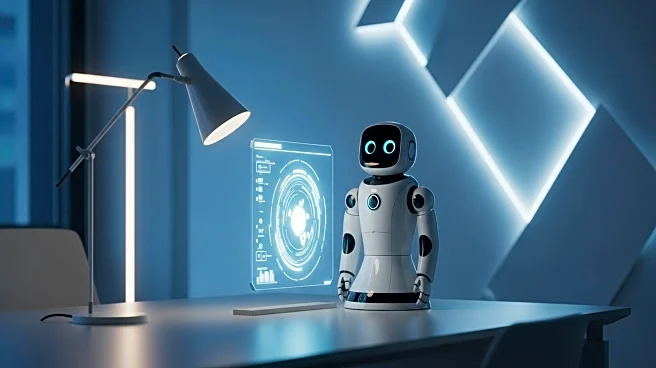What is the story about?
What's Happening?
A recent discussion has emerged regarding the use of artificial intelligence (AI) tools in workplaces, highlighting concerns about productivity and reputation. According to a Harvard Business Review article, indiscriminate use of AI can lead to 'workslop,' which refers to AI-generated content that appears to be productive but lacks substance. This includes reports, code, and emails that require more time to correct than if created by humans. The article suggests that while AI is embedded in everyday tasks, its misuse can damage workplace environments and perceptions of colleagues. Despite its potential benefits, AI's implementation can sometimes be more effortful than manual task completion.
Why It's Important?
The significance of this issue lies in the potential impact on workplace efficiency and employee relations. AI-generated 'workslop' can waste time and resources, affecting productivity and the quality of work. Moreover, it can alter perceptions of colleagues, making them appear less capable or trustworthy. As AI becomes increasingly integrated into work processes, understanding its limitations and proper usage is crucial for maintaining a productive and harmonious work environment. Organizations must balance AI's convenience with its potential drawbacks to ensure it adds value rather than detracts from it.
What's Next?
Organizations and leaders are encouraged to provide guidelines for AI usage that align with their strategic goals and values. This involves articulating clear purposes for AI implementation and allowing employees to push back when its use does not meet these objectives. Additionally, transparency in AI usage and mindful consideration of its environmental impact are recommended. Companies may also consider implementing AI 'off' switches to give employees control over its use. Regular AI detoxes, where employees work without AI, could help maintain creativity and original thinking.
Beyond the Headlines
The ethical implications of AI usage in workplaces are significant. As AI tools become more prevalent, there is a risk of diminishing human creativity and originality. The reliance on AI for tasks traditionally performed by humans could lead to a loss of critical thinking skills and innovation. Furthermore, the environmental impact of AI, such as energy consumption for data processing, raises concerns about sustainability. Organizations must weigh the benefits of AI against these ethical considerations to ensure responsible and effective use.

















